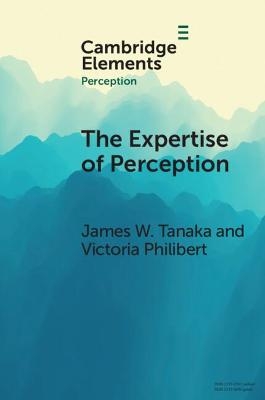
The Expertise of Perception
How Experience Changes the Way We See the World
Seiten
2022
Cambridge University Press (Verlag)
978-1-108-82641-9 (ISBN)
Cambridge University Press (Verlag)
978-1-108-82641-9 (ISBN)
Explores the interaction between perception and experience by studying perceptual experts, people who specialize in recognizing objects such as birds, automobiles, dogs. It proposes perceptual expertise promotes a downward shift in object recognition where experts recognize objects in their domain of expertise at a more specific level than novices.
How does experience change the way we perceive the world? This Element explores the interaction between perception and experience by studying perceptual experts, people who specialize in recognizing objects such as birds, automobiles, dogs. It proposes perceptual expertise promotes a downward shift in object recognition where experts recognize objects in their domain of expertise at a more specific level than novices. To support this claim, it examines the recognition abilities and brain mechanisms of real-world experts. It discusses the acquisition of expertise by tracing the cognitive and neural changes that occur as a novice becomes an expert through training and experience. Next, it looks “under the hood” of expertise and examines the perceptual features that experts bring to bear to facilitate their fast, accurate, and specific recognition. The final section considers the future of human expertise as deep learning models and artificial intelligence compete with human experts in medical diagnosis.
How does experience change the way we perceive the world? This Element explores the interaction between perception and experience by studying perceptual experts, people who specialize in recognizing objects such as birds, automobiles, dogs. It proposes perceptual expertise promotes a downward shift in object recognition where experts recognize objects in their domain of expertise at a more specific level than novices. To support this claim, it examines the recognition abilities and brain mechanisms of real-world experts. It discusses the acquisition of expertise by tracing the cognitive and neural changes that occur as a novice becomes an expert through training and experience. Next, it looks “under the hood” of expertise and examines the perceptual features that experts bring to bear to facilitate their fast, accurate, and specific recognition. The final section considers the future of human expertise as deep learning models and artificial intelligence compete with human experts in medical diagnosis.
1. Introduction: How Experience Changes the Way We See the World; 2. The Basic Level Category as the Entry-Point of Visual Recognition; 3. The Downward Shift Hypothesis; 4. Everyday, Developmental, and Neurodivergent Expertise; 5. Perceptual Expertise in the Laboratory; 6. Cognitive Mechanisms: Attention, Encoding and Short-term Memory; 7. Face Recognition and the Holistic Hypothesis; 8. Global and Local Processing; 9. Diagnostic Features: Color and Spatial Frequency; 10. Neural Substrates: EEGs and the N170 Component; 11. Convolutional Neural Networks: the new 'Artificial' Expert.
| Erscheinungsdatum | 14.03.2022 |
|---|---|
| Reihe/Serie | Elements in Perception |
| Zusatzinfo | Worked examples or Exercises |
| Verlagsort | Cambridge |
| Sprache | englisch |
| Maße | 152 x 227 mm |
| Gewicht | 140 g |
| Themenwelt | Geisteswissenschaften ► Psychologie ► Allgemeine Psychologie |
| Geisteswissenschaften ► Psychologie ► Biopsychologie / Neurowissenschaften | |
| ISBN-10 | 1-108-82641-5 / 1108826415 |
| ISBN-13 | 978-1-108-82641-9 / 9781108826419 |
| Zustand | Neuware |
| Haben Sie eine Frage zum Produkt? |
Mehr entdecken
aus dem Bereich
aus dem Bereich
wie Affekte innere Entwicklung ermöglichen
Buch | Softcover (2023)
Klett-Cotta (Verlag)
CHF 41,95
Buch | Softcover (2024)
Hogrefe Verlag
CHF 46,50


